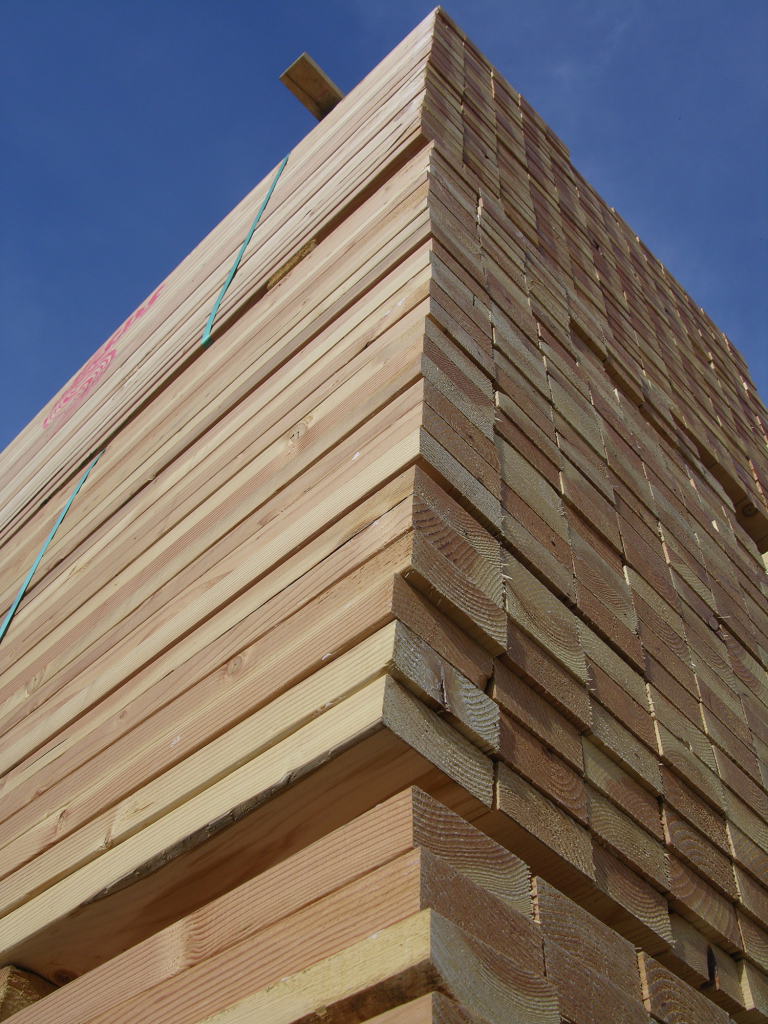The U.S. government’s decision to impose countervailing duties of up to roughly 20% on Canadian softwood lumber–with the prospect that antidumping duties later this year will push total tariffs up above 30%–has stirred up a cauldron of mixed emotions as well as concerns for what’s to come. Here’s a roundup:
* The Canadian dollar’s value dropped to 73 U.S. cents in trading April 25, its lowest close in over a year. Meanwhile, stock prices for several major Canadian timber mills rose on relief that the duties weren’t as bad as they could have been, the Winnipeg Free Press reported.
* The ruling didn’t change prices much but did affect volume because Canadian mills were cautious to go to market. One U.S.-based trader said the Canadian mills were waiting to see how the duty would be applied retroactively.
* U.S. home builder stocks declined slightly April 25 on concern new tariffs by the Trump administration on Canadian softwood lumber imports will raise costs, CNBC wrote. But lumber futures fell a bit, apparently on profit-taking.
* The National Association of Home Builders countered what it described as suggestions by Commerce Secretary Wilbur Ross that the tariffs would have minimal impact on the housing industry and housing costs. “If the 20% lumber duty remains in effect throughout 2017, NAHB estimates this will result in the loss of nearly $500 million in wages and salaries for U.S. workers, $350 million in taxes and other revenue for the governments in the U.S. and more than 8,200 full-time U.S. jobs,” NAHB Chairman Granger MacDonald said in a statement. “Lumber prices have already jumped 22% since the beginning of the year, largely in anticipation of new tariffs, adding nearly $3,600 to the price of a new single-family home.”
* Canada’s minister of natural resources and minister of foreign affairs decried what they called “baseless and unfounded” claims by the U.S. Commerce Department that Canada was selling softwood lumber in the U.S. at unfairly low prices that in effect were subsidized through Canadian government ownership of public logging lands that carry low stumpage fees. The ministers said their government “will vigorously defend the interests of the Canadian softwood lumber industry, including through litigation.” International tribunals have consistently ruled for Canada in this decades-old dispute.
* Timber mills and related interests in Minnesota welcomed the ruling. “ It’s been frustrating to the timber industry for years to see full rail cars heading south from Canada,” Scott Dane, executive director of the Gilbert, Minn.-based Associated Contract Loggers and Truckers of Minnesota, told the Twin Cities Pioneer Press. Wayne Brandt, executive director of the Duluth-based Minnesota Timber Producers Association, told the newspaper: “Our preference is always that there be an agreement worked out between the two countries so we can have a rational system for pricing products to the market. … Maybe this will spur the Canadian producers to come to the table and arrive at an agreement.”
* Wisconsin timber companies told the Milwaukee Journal-Sentinel that the decision is a good thing. “I don’t really like government intervention into business, but I think it’s something that is necessary at this point to put us back on an even playing field,” said Tim Kassis, international sales manager at Kretz Lumber Co. in Antigo, Wis.
* COALITION, an alliance of lumber producers and related interests in the U.S., congratulated the Trump Administration for its decision. “Today’s ruling confirms that Canadian lumber mills are subsidized by their government and benefit from timber pricing policies and other subsidies which harm U.S. manufacturers and workers,” Coalition Legal Chair Cameron Krauss, senior vice president of legal affairs at Seneca Sawmill in Eugene, Ore., said in a statement. “… The COALITION is hopeful that the duties imposed by today’s decision will begin the process of creating a level playing field for the future and allow for U.S. manufacturers to make essential investments and expand the domestic lumber industry to its natural market and protect and grow the jobs that are so essential to our workers and our communities.”


